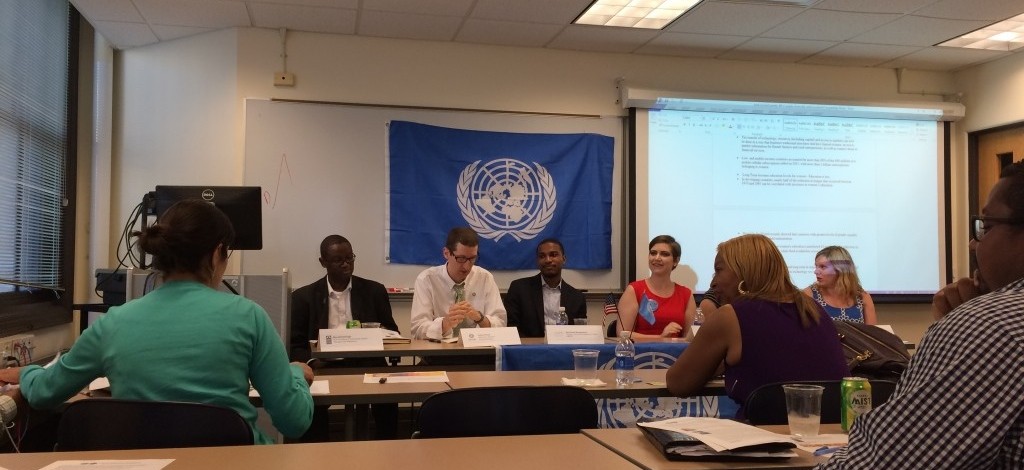The views and opinions expressed on the website are those of the authors and do not necessarily reflect the views or opinions of Niagara Foundation, its staff, other authors, members, partners, or sponsors.
By Meghan Zacher, Center for Public and Global Affairs Intern
July 24, 2015
Today, at this very moment, approximately 795 million people do not have enough food to eat or do not know where their next meal is coming from. This is a staggering number to hear, especially as someone who has never had to worry about either of those things, but this situation is a genuine global issue. On Thursday, July 23rd, the United Nations Association – Greater Chicago Chapter presented a panel and discussion on food security and food sovereignty. The distinguished panel, from organizations like Oxfam, UNICEF, and the UN, presented a multitude of interesting solutions on this issue. They discussed sustainable business practices, land grabbing, climate change issues, and so much more but the ideas that stood out to me the most were their thoughts on female empowerment and the impact that could have on not only food security, but any of the UN’s Millennium Development Goals.
Throughout the world, women produce more than 50% of the world’s food. In sub-Saharan Africa that amount rises to about 80%. Women are also primarily responsible for the preparation, storage, and processing of food. However, this work is considered to be part of their “duty” as a female rather than an important part of the world’s economy. Therefore, much of women’s rural labor goes unpaid and women typically do not own the land they work on. This leads to them not being incorporated into statistics that would gain them political power, social representation, or extension services like education. As a result, the full potential of small female farmers is never accessed.
To combat this issue, it is imperative that we create a situation where women have more access to land and resources, equal employment opportunities and competitive wages, and access to knowledge about credit and legal systems. It has been shown that female education has the highest return on investment of any program implemented in the developing world. If we can make these improvements, not only will we help to achieve zero hunger, but we can also affect the problems in education, healthcare, and the environment.

